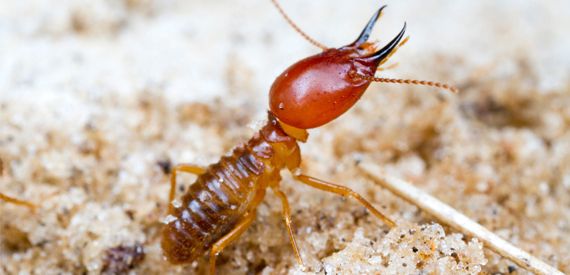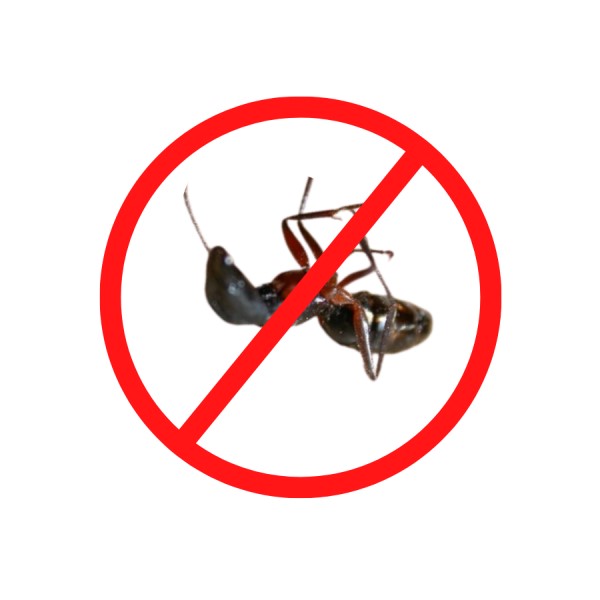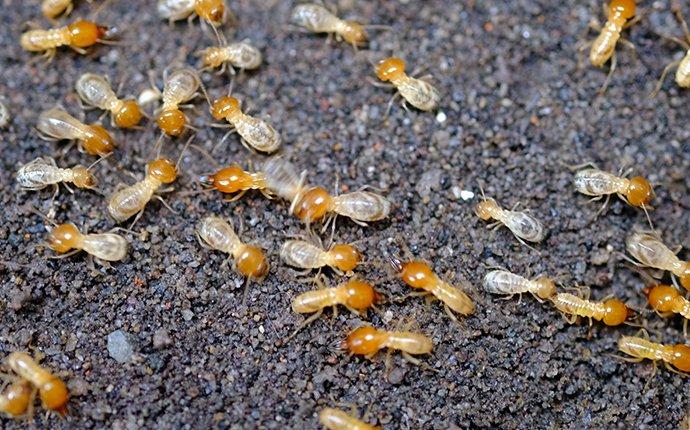Why Pick Our Termite Control Services: Specialist Solutions for Effective Defense
Why Pick Our Termite Control Services: Specialist Solutions for Effective Defense
Blog Article
Ecological Influence of Bug Control: Balancing Performance With Sustainability
The ecological effect of pest control is a vital concern that calls for a delicate balance between attaining efficiency in making sure and managing bugs sustainability of our ecological communities. As we aim to safeguard our plants, homes, and health and wellness from the dangers postured by pests, the approaches we use can accidentally hurt the setting. From using damaging chemicals that leak into our dirt and water to the unintended effects on non-target varieties, the consequences of traditional bug control methods are far-reaching. Nonetheless, there are emerging approaches that use wish for an extra lasting strategy to pest management. These options not just aim to deal with the prompt pest problems however additionally consider the long-term health of our world.
Damaging Chemicals in Bug Control
The use of unsafe chemicals in parasite control poses significant environmental and health dangers that require cautious consideration and mitigation techniques. Herbicides, pesticides, and insecticides are commonly used to eliminate pests, however their widespread application can bring about unintentional effects. These chemicals can contaminate soil, water sources, and the air, affecting not just the targeted insects however additionally useful bugs, wildlife, and human beings.

To attend to these threats, integrated pest monitoring (IPM) methods are being advertised as an extra lasting choice. IPM involves a combination of approaches such as biological control, habitat manipulation, and the targeted use chemicals as a last hope (ant control indian trail nc). By taking on an all natural approach to pest control, we can reduce the environmental and wellness effects linked with unsafe chemicals while properly handling pest populations
Effect On Non-Target Species
Thinking about the unintentional consequences of pest control methods, the impact on non-target varieties is a vital aspect that requires thorough evaluation. While insect control procedures aim to target specific bugs, various other organisms in the ecological community might be accidentally affected. Non-target varieties, consisting of helpful pests, birds, mammals, and even plants, can experience indirect or straight injury from pesticide applications or biological control techniques.
Pesticides can have dangerous or sub-lethal impacts on non-target types. Pesticides created to deal with a particular insect pest may hurt pollinators like bees or all-natural killers such as ladybugs. Furthermore, chemical deposits can build up in the atmosphere, influencing non-target organisms with time. Organic control agents, if not species-specific, can pose risks to unexpected targets, interrupting the environmental balance.
To alleviate the effect on non-target types, incorporated bug management (IPM) approaches that highlight an alternative technique to pest control are recommended. These approaches prioritize the use of environmentally pleasant practices, decreasing injury to advantageous microorganisms while efficiently taking care of pest populaces. Conducting comprehensive danger evaluations and checking the results of pest control initiatives are vital action in securing non-target species and promoting general community health and wellness.
Soil and Water Contamination
Unexpected ecological repercussions of parasite control approaches extend past influencing non-target varieties, with significant ramifications for dirt and water contamination - termite control. Chemicals, herbicides, and chemical plant foods made use of in pest control can leach into the dirt and infect groundwater, posing a risk to both earthbound and aquatic ecological communities.
Water contamination is another important issue connected with bug control techniques. Drainage from farming areas treated with chemicals can carry these chemicals into close-by water bodies, impacting water microorganisms and water high quality. Pollutants in water sources can have significant consequences, impacting not only aquatic life but also human wellness with the usage of infected water or water organisms. To reduce soil and water contamination from pest control tasks, incorporated bug administration approaches that prioritize sustainability and minimize chemical inputs are important.
Air Pollution From Chemical Use
Direct exposure to air-borne chemicals during farming applications postures a significant problem for air pollution control procedures. When pesticides are splashed onto plants, they can volatilize right into the air and kind unstable natural compounds (VOCs) and other air-borne pollutants. These chemicals can contribute to the formation of ground-level ozone, a major part of smog that can have destructive results on human health, crop performance, and general air quality. Furthermore, pesticide drift, where pesticides are lugged by the wind to unexpected areas, can cause the contamination here are the findings of neighboring ecological communities and water bodies.

Techniques for Sustainable Bug Control
In the world of agricultural practices, carrying out lasting parasite control strategies is critical for preserving environmental equilibrium and guarding plant returns. Lasting parasite control emphasizes making use of eco-friendly techniques to handle bug populations successfully while lessening injury to non-target microorganisms and ecological communities. Integrated Bug Administration (IPM) is a commonly embraced technique that integrates biological, cultural, physical, and chemical control techniques to accomplish long-term pest management remedies.
One key strategy in lasting bug control is promoting biodiversity within agroecosystems. By enhancing natural adversaries of parasites, such as killers and parasitoids, farmers can reduce the need for artificial chemicals. Crop turning and diversity are additionally reliable techniques to interfere with pest life process and create less favorable problems for bugs to flourish. Additionally, using pest-resistant plant varieties and employing strategies like trap cropping can aid reduce bug pressure without counting heavily on chemical treatments. Inevitably, by integrating these sustainable parasite control methods, farmers can achieve an equilibrium between pest management efficiency and environmental stewardship.
Conclusion
To conclude, the environmental effect of parasite control methods need to be carefully taken into consideration to stabilize effectiveness with sustainability. Harmful chemicals used in bug control can lead to soil and water contamination, air pollution, and damage non-target varieties - ant control services. It is vital to implement sustainable bug control approaches to lessen these negative effects on the atmosphere and promote a much healthier ecological community for future generations
By adopting an alternative technique to pest control, we can lessen the ecological and wellness impacts associated with dangerous chemicals while properly managing pest populations.

To mitigate the air contamination created by pesticide usage, it is important to take on incorporated insect monitoring techniques that focus on the use of non-chemical pest control approaches, such as crop rotation, all-natural predators, and resistant crop ranges. Lasting parasite control highlights the usage of eco friendly techniques to take care of pest populations properly while reducing damage to non-target microorganisms and communities. Integrated Bug Monitoring (IPM) is a commonly taken on strategy that integrates organic, social, physical, and chemical control techniques to achieve lasting bug monitoring services.
Report this page